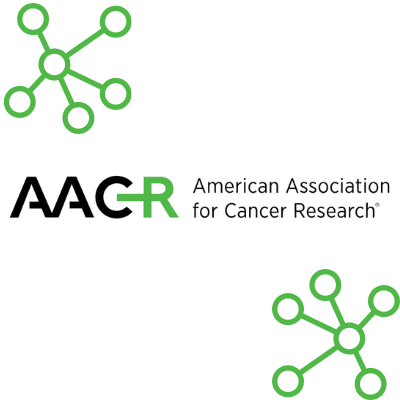
Details about AACR CLINICAL ONCOLOGY RESEARCH (CORE) TRAINING FELLOWSHIPS 2023
AACR CLINICAL ONCOLOGY RESEARCH (CORE) TRAINING FELLOWSHIPS 2023 is offered for Research Fellow/ Scientist degree in the field of Medicine, Oncology .
The deadline for the sending your application is 31 Aug 2023. This scholarship is provided by American Association for Cancer Research and the value of this scholarship is Full Funding, $100,000 USD . This scholarship is open for: Open to all nationals .
- Degree: Research Fellow/ Scientist
- Provided by: American Association for Cancer Research
- Deadline: 31 Aug 2023
- Scholarship value: Full Funding, $100,000 USD
- Host Country: United States
More Scholarships:
ARC Centre of Excellence for Plant Energy Biology Warwick Hillier Honours Scholarships 2023
Oxford-Radcliffe Graduate Scholarships 2023
Cape Breton University Entrance Scholarships in Canada 2024
The AACR Clinical Oncology Research (CORE) Training Fellowships Program aims to offer academic clinicians a unique opportunity to undergo an industry-academic clinical practicum, enabling them to receive training in drug development. Each fellowship comes with a grant of $100,000 for a one-year duration, during which the fellow will work on-site at one of the AACR’s pharmaceutical industry partners’ facilities.
Here is an account of Siddharth (Sid) Sheth’s rewarding experience as the inaugural grantee of the AACR CORE Training Fellowship program, including an interview at the AACR Annual Meeting 2019 and a first-person testimonial published in Leading Discoveries.
Program Overview:
Purpose: This fellowship targets early-career clinical scientists with a medical degree (MD, DO, or MD/Ph.D.) who have an interest in gaining knowledge and skills related to drug development from the pharmaceutical industry’s perspective. The fellow will gain practical experience in drug development, including clinical research, clinical trial design, and data analysis.
Activities: The fellow will be responsible for executing clinical activities and research projects during the one-year program. Depending on the fellow’s background, there may be additional focus areas, such as preclinical research or biomarker discovery. The program also offers opportunities for publication and presentation of completed work. The industry partners and their specific areas of interest are as follows:
AstraZeneca (facility located in Gaithersburg, MD):
- Late-stage clinical development within medical affairs in hematology/oncology
Johnson & Johnson (facility location to be agreed upon, possibly in the greater Boston or Philadelphia areas):
- Early-stage clinical development in interventional immuno-oncology therapies for non-small cell lung cancer (NSCLC)
- Early-stage clinical development program targeting lung cancers in a high-risk population
Duration: The fellowship lasts for 12 months. The exact duration spent on-site at the industry partner may be flexible and determined on a case-by-case basis, considering the fellow’s academic institution and the industry partner’s agreement (e.g., allowing the fellow to return to their academic institution for clinic duties during parts of the 12-month term).
Application Process Overview:
- Applications are accepted continuously and should be submitted to grants@aacr.org.
- A quarterly review of the submitted applications is conducted by an AACR Scientific Review Committee.
- Selected fellows are notified after the review.
- The start date of the grant term is flexible and mutually agreed upon between the selected fellow, their academic institution, and the industry partner.
Note: Applications received after the initial application deadline will still be considered, but they may be reviewed during a later quarterly review period.
Eligibility for The AACR Clinical Oncology Research (CORE) Training Fellowships Program:
- The applicant should possess a medical degree (including MD, DO, or MD/Ph.D.) in a related field and should not be currently pursuing another doctoral degree.
- The applicants must have enrolled in an accredited hematology/oncology fellowship program at an academic, medical, or research institution within the United States.
- They should not be employees or subcontractors of any U.S. government entity or for-profit private industry. Furthermore, clinical fellows applying from a U.S. government laboratory (e.g., NIH, CDC, FDA, etc.) are not eligible.
- For the Johnson & Johnson grant specifically, the applicants must be females or belong to underrepresented groups as defined by the NIH guidelines (Notice of NIH’s Interest in Diversity). These underrepresented groups include:
a. Individuals from racial and ethnic backgrounds that have been shown by the National Science Foundation to be underrepresented in health-related sciences on a national basis.
b. Individuals with disabilities, characterized as those with a physical impairment significantly limits one or more major life activities.
c. Individuals from disadvantaged backgrounds.
